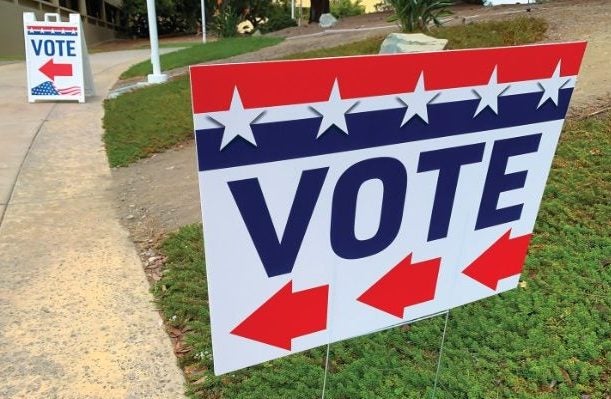Johns honored in Congress
Published 10:22 pm Tuesday, October 2, 2018

- Joan Johns Cobbs, Barbara Johns’ younger sister and Ernest Johns, Johns’ younger brother, attend a congressional meeting Thursday where Congress was asked to award Barbara Rose Johns the Congressional Medal. Pictured are, from left, Representative Tom Garrett, Johns, Sen. Tim Kaine, Cobbs and Moton Museum Director of Education and Public Programs Cainan Townsend.
Members of Barbara Rose Johns’ family attended a Congressional meeting in which Representative Tom Garrett asked that the Congressional Gold Medal be given to Johns, a student civil rights activist who moved to address education inequality in Prince Edward County and in turn laid the groundwork for Brown v. Board of Education and public school integration.
Joan Johns Cobbs, Barbara Johns’ younger sister and Ernest Johns, Johns’ younger brother, attended the meeting with Director of Education and Public Programs at the Robert Russa Moton Museum Cainan Townsend, Garrett and Sen. Tim Kaine.
Townsend said he hoped that greater awareness of Johns’ story and the story of the area would come through the meeting.
“The Johns family and representatives from the Moton Museum had the opportunity to go to Capitol Hill and educate House members on the history and legacy of Barbara Rose Johns Powell,” Townsend said in a statement. “It was a great experience and hopefully will get recognition for this civil rights icon.”
Garrett was given six minutes to present to Congress. Standing next to a painting of Johns, Garrett asked members of Congress and national leaders to consider passing HR 5561, a bill that would direct national leaders to “arrange for the posthumous award of a Congressional Gold Medal to Barbara Rose Johns in recognition of her achievements and contributions to the nation and civil rights,” the text of the bill cited.
Past Congressional Gold Medal recipients include Colin Powell, those who marked public school integration with Little Rock Nine, George Washington, General Ulysses S. Grant,
“This case was initiated by a 16-year-old girl who understood that the promise of liberty was not just to one group or another,” Garrett said.
Barbara Rose Johns Day became an official holiday in Virginia in 2017. The bill for that day was introduced by Garrett.
Johns, at 16, organized a student walkout of Robert Russa Moton High School April 23, 1951, to address educational inequality between the all-African-American high school and all-white schools. Johns’ case, Davis v. County School Board of Prince Edward County, was the only student-led case included in Brown v. Board of Education, which ruled segregation of public schools unconstitutional.
“Barbara Johns’ story is a story that every American should know,” Garrett said.
Garrett argued that Johns’ story was American history rather than a story that would solely be told on Black History Month.
“She implored her students to walk out of the Moton High School, and the tar paper shacks and the leaking roofs, and to demand equality,” Garrett said. “Not of outcomes but of opportunity.”
“I hope that students if they’re watching they will go to school tomorrow, and tell their peers ‘this is a country where people stood up so that we all have a chance to be that which we dream to be,’ because that’s who Barbara Rose Johns was, and it’s an American history story worth telling,” Garrett said.





